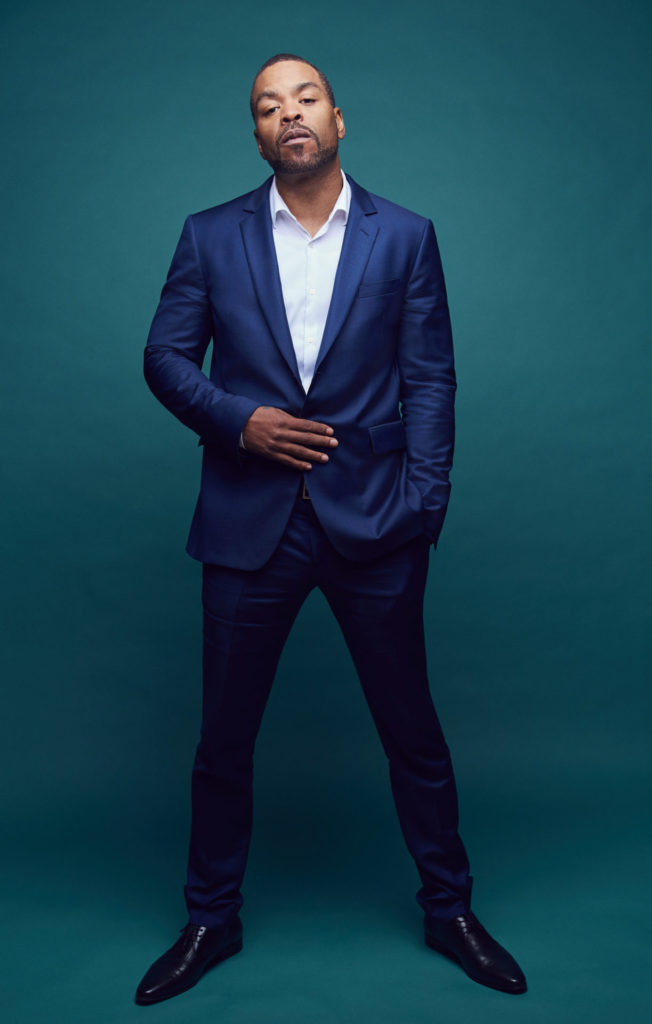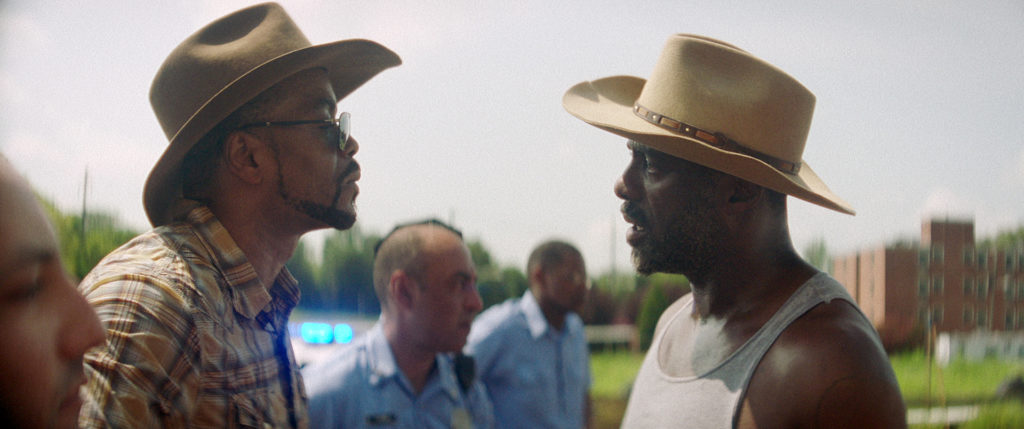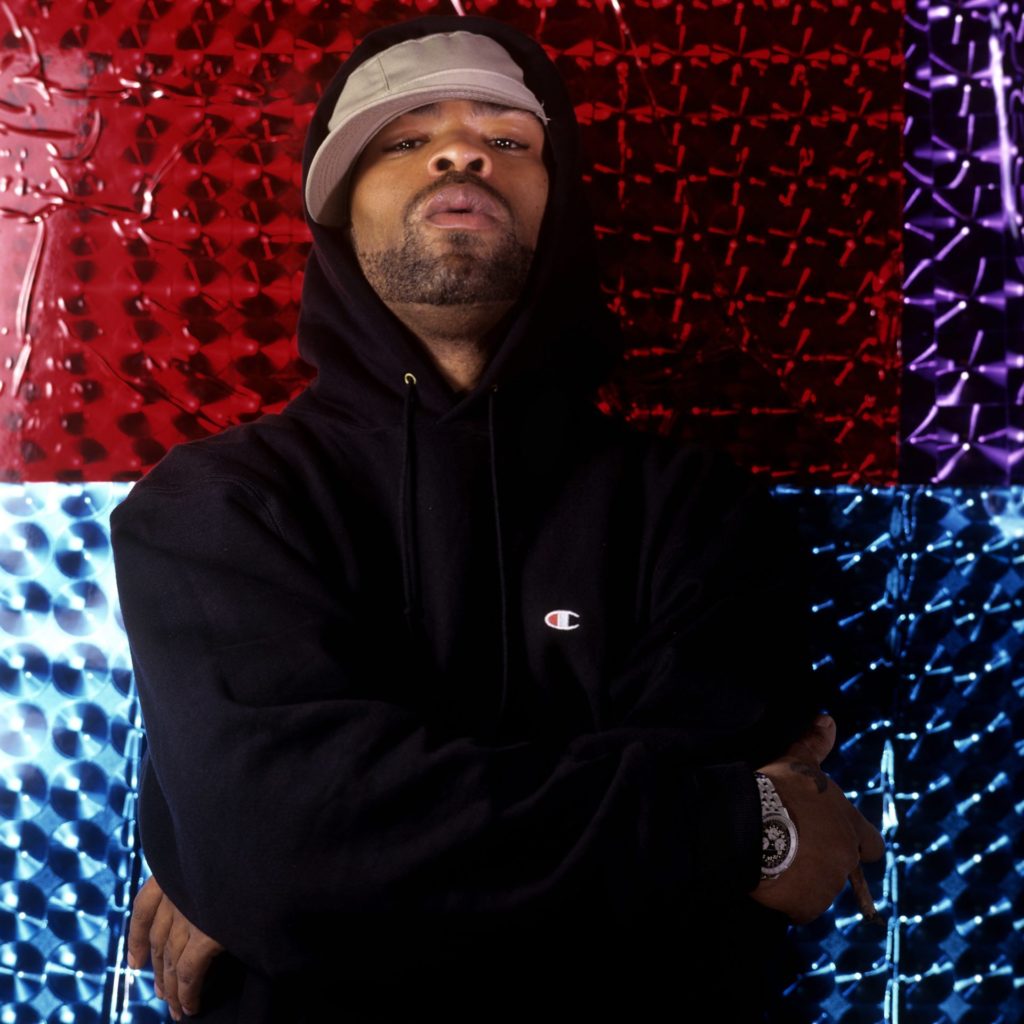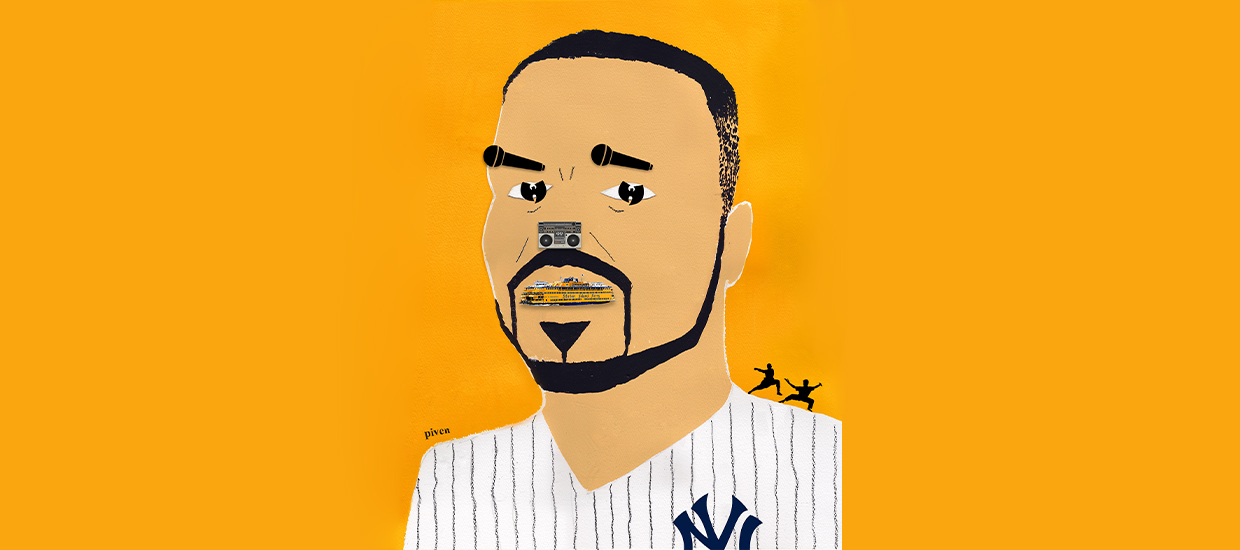One thing overlooked about many rappers-turned-actors is just how good they had to be as rappers. Charlize Theron and Gal Gadot were perfectly fine fashion models, but Ice Cube, Ice T, and LL Cool J each transformed the music industry, while Method Man was a blockbuster presence from the very moment he stepped onstage. As the biggest star in perhaps the biggest hip-hop group of the last 30 years, the Wu-Tang Clan, Cliff “Method Man” Smith seemed to arrive fully formed, with blazing charisma and an instinct for voice, narrative, and self-presentation that most actors take years to acquire. For a decade, he spread these gifts across a rogues’ gallery of convicts, gangsters, and sleepy-eyed stoners—but then Method Man got serious. He became a passionate student of the craft and began to put his moneymaking physicality to complete use. His two latest parts are telling: too-slick criminal defense lawyer Davis Maclean in the TV crime drama Power Book II: Ghost and horseback-riding ghetto cop in the Netflix indie drama Concrete Cowboy. Each is a worthy successor to the frighteningly magnetic pimp he played in David Simon’s gritty HBO Times Square period piece, The Deuce. Both are products of research, study, experience, and having spiritually grown into his 6-foot-3 frame. A day after his odometer clicked past 50, he called Hemispheres from his longtime home in Staten Island to talk about his ever-morphing career.
Happy birthday, Method Man!
Hey, thank you. I appreciate it.
It seems like you had a big turning point as an actor five or six years ago. What events came together to make you reexamine things?
Well, it was the routine of going to do hip-hop shows, coming back home, going out, coming home, and I was like, “I know I have way more to offer than this.” No new music was being made, and after my fifth time overseas in a single year I said enough was enough. I love the fans, the shows are always off the hook, but the routine of it was getting to me—eating at the same places we’d been to a month before.
Like a hip-hop Groundhog Day.
Yeah. Amsterdam to Germany, Germany to Warsaw. And do it all over again. And when I was offered a part in The Cobbler, in 2013, I wasn’t really pre-pre pared for it.
The Cobbler is a magical realism–style film about a Jewish shoe repairman in New York’s Lower East Side. I can see how that would be a stretch.
Yes. And I hadn’t had a role in a while, so when the film came around, my mind wasn’t where it was supposed to be. I was lucky to have a director like Tom McCarthy, who took me through the steps and explained things to me in a way that I could understand them fully. And his direction gave me a whole new perspective on acting, let me see how things were done. After that, I just wanted to eat it up and learn more and more.

How did you go about it?
I dedicated myself. I went out to LA. Instead of staying at a swank hotel, I stayed at my manager’s house and slept on her couch. I just needed to strip myself of all things Method Man and ask myself the question, Where do I want to go, and how do I want to do it?
What transformative lessons did you learn?
I studied with Ivana Chubbuck, who has a book called The Power of the Actor, which is essential to any-any body that wants to be a great actor. She gave me 12 tools, which I didn’t always get as fast as everybody else, but over time I picked things up, saw things more clearly, learned more. I would say, when I was on the set of Keanu, by Key and Peele, that was the first time I had this new confidence. I showed up in Atlanta not acclimated to the hot climate, and I kid you not, I must have sweated through the entire day. Everything was wet—and that was the scene where my introduction happened. When I was greener, the sweat would have made me stop, but for some reason, something clicked, and I said, Just use it. This is something Ivana Chubbuck always stressed: Use it. I just forgot that I was sweating. It was still coming down, but it didn’t matter to me to the point where it messed with my performance.
Some of the greatest actors talk about finding a character the moment they put on a certain piece of wardrobe. Anthony Hopkins talks about how a fitted prison jumpsuit unlocked Hannibal Lecter. Did you ever have that experience?
Definitely Rodney from The Deuce. Soon as that wig went on, man, it was like, Yeah. I just disappeared. I disappeared into the wig, from day one of shooting. Even when I spoke with Maggie Gyllenhaal, and we weren’t even on set yet, it was all pimp talk. But they fought me at first, I believe. Not really fought me, but they were like, “I don’t think any pimps had hair like that back then.” So I had to send them a couple of pictures from online, and show them that, yeah, this is it right here. And they were pretty cool about it. You know how David [Simon] and Nina [Kostroff Noble] and all those guys run. They run a great ship, like family.
You must have needed that confidence you mentioned when you took on a serious role like Rodney.
Yeah. At first it wasn’t difficult to do the scenes. At least with the other guys being pimps and things of that nature that was a more comfortable setting. But when it came down to myself and Maggie Gyllenhaal, that was … different. It’s hard to explain.
Were you afraid of being out-acted by her?
No. I mean, she was gracious enough to have a rehearsal with me ahead of time, before we even shot the scene—and that was after she’d worked that day. I love her for that. It was the scene we had together where I’m trying to break her down, recruit her. She’s crying, and she’s such a great actress, she drew me in. That was the day I stopped liking Rodney. I mean, I love coming to work, I love certain parts of the role, but when it came to doing ugly s *** like that, I didn’t really know what I had signed up for.
I read that you did an acting class where you played the Denzel Washington lawyer part in Philadelphia, while another student did the Tom Hanks part. Do you remember what the scene was?
It was when they first meet in Denzel’s office. And Hanks’s character comes in, and he’s reading Denzel, and then drops the bomb on him, tells him he has AIDS. Denzel’s eyes shift, he gets stiff—he’s just so brilliant in that movie. Like I’ve said, 70 percent of Hollywood takes everything from Denzel Washington. And every courtroom scene he has in Philadelphia, you can learn from that.
How did you approach the lawyer you play, Davis Maclean, in Power Book II: Ghost? What locked you into him as a person?
Man, I’d never done anything like that before, so I had to work my a ** off. Inspirations came from everyday life, as well as different people who’ve played lawyers in the past—a little piece of each one that you can make familiar and apply to yourself, and you roll with that.
Let’s talk about your new film, Concrete Cowboy. It’s set in the real-life stable scene in North Philadelphia, an outlaw, self-supporting community of Black equestrians that helps at-risk kids through horseback riding. Did you take riding lessons?

No, it didn’t have that kind of budget, but I got a crash course once I got there. And I think I did as well as I possibly could. But to a trained eye, someone that actually rides horses, they’ll probably think I did … all right.
Your character is a tough Philly cop with roots in the stable world. I was struck by a powerful scene you have with the character played by Caleb McLaughlin, this young kid facing what seems like a bad set of options. It ends with your line, “You don’t have to get out to grow up.” I don’t think you could have played that scene five or 10 years ago, do you?
No, because my mind wasn’t where it should’ve been. I was riding a rock-star wave, you know? But in that scene with Caleb, for him to even be that vulnerable at that point in time, while I was basically giving him food for thought and jewels for the rest of his life, you know that there’s no line drawn between yourself and community policing. And that’s how I took it. I took it as, what kind of officer would I want in my neighborhood?
How do you feel about horses now?
They’re incredible creatures. They’re really … unicorn-like.
Ever work with animals before?
Yeah. I worked with a cat in Keanu.
That’s right! “We’re in the market for a gangsta pet.”
That’s right. That cat was loving me, too. It was like my arms was catnip.

Most rappers-turned-actors go by at least two names, but you’ve got Meth, Johnny Blaze, Hott Nikkels, Iron Lung, Ticallion Stallion, Methical, Johnny Dangerous, and a couple more that I probably can’t say in this magazine. Were all these different names a sort of rehearsal for different roles in acting?
Nah, nah. It’s just something fun that we was doing. A little wave we had, and people started copying it, and soon everybody wanted an AKA.
Too bad you took them all!
That’s right, I took all of them.
Do you have a model actor?
Don Cheadle. I loved him when he played Denzel’s gangster cousin Mouse in Devil in the Blue Dress. I loved him in Hotel Rwanda, Ocean’s 11, Brooklyn’s Finest—his range is incredible.
Now that you’re 50, do you think about the legacy you’ll leave behind?
Let’s just put it this way: Wu-Tang Clan has a district in my old neighborhood. An actual district. So we’re always going to be here because of that. That is proof that we existed right there.
Does that happen a lot in Staten Island, where people make it but stay in that borough and make it a home?
Whether you’re Staten Island, Brooklyn, Houston, LA, you always have to give back to your neighborhood. Especially if you were one of those people whose path wasn’t always so clean. Because those people didn’t choose to be there, whatever others think, and if there’s any way you can help them get closer to their goal of happiness, you have to do it. You can’t take blood and not give blood back.
Next Up: Jesse Tyler Ferguson Opens Up About His Hometown, Albuquerque
